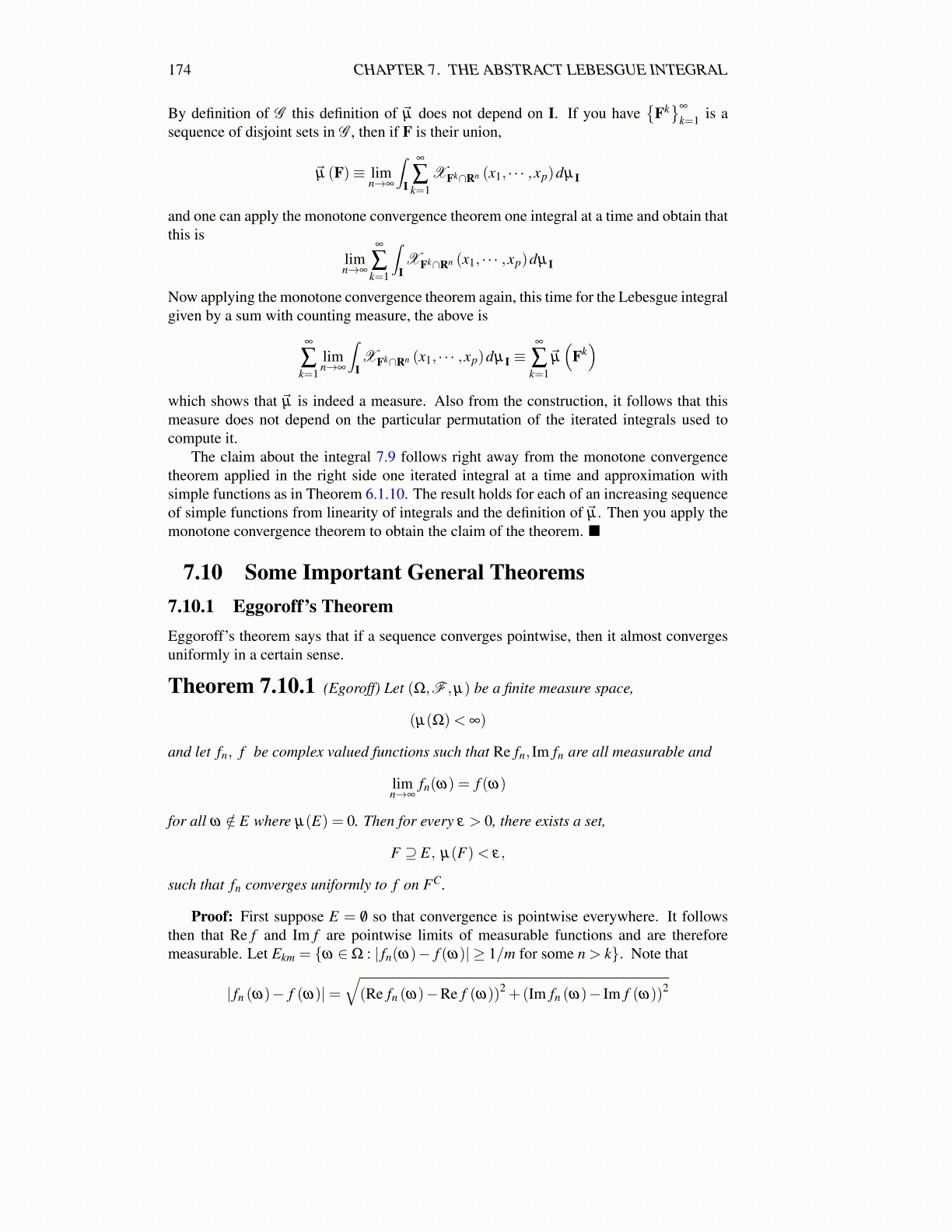
174 CHAPTER 7. THE ABSTRACT LEBESGUE INTEGRAL
By definition of G this definition of µ⃗ does not depend on I. If you have{
Fk}∞
k=1 is asequence of disjoint sets in G , then if F is their union,
µ⃗ (F)≡ limn→∞
∫I
∞
∑k=1
XFk∩Rn (x1, · · · ,xp)dµI
and one can apply the monotone convergence theorem one integral at a time and obtain thatthis is
limn→∞
∞
∑k=1
∫IXFk∩Rn (x1, · · · ,xp)dµI
Now applying the monotone convergence theorem again, this time for the Lebesgue integralgiven by a sum with counting measure, the above is
∞
∑k=1
limn→∞
∫IXFk∩Rn (x1, · · · ,xp)dµI ≡
∞
∑k=1
µ⃗
(Fk)
which shows that µ⃗ is indeed a measure. Also from the construction, it follows that thismeasure does not depend on the particular permutation of the iterated integrals used tocompute it.
The claim about the integral 7.9 follows right away from the monotone convergencetheorem applied in the right side one iterated integral at a time and approximation withsimple functions as in Theorem 6.1.10. The result holds for each of an increasing sequenceof simple functions from linearity of integrals and the definition of µ⃗ . Then you apply themonotone convergence theorem to obtain the claim of the theorem. ■
7.10 Some Important General Theorems7.10.1 Eggoroff’s TheoremEggoroff’s theorem says that if a sequence converges pointwise, then it almost convergesuniformly in a certain sense.
Theorem 7.10.1 (Egoroff) Let (Ω,F ,µ) be a finite measure space,
(µ(Ω)< ∞)
and let fn, f be complex valued functions such that Re fn, Im fn are all measurable and
limn→∞
fn(ω) = f (ω)
for all ω /∈ E where µ(E) = 0. Then for every ε > 0, there exists a set,
F ⊇ E, µ(F)< ε,
such that fn converges uniformly to f on FC.
Proof: First suppose E = /0 so that convergence is pointwise everywhere. It followsthen that Re f and Im f are pointwise limits of measurable functions and are thereforemeasurable. Let Ekm = {ω ∈Ω : | fn(ω)− f (ω)| ≥ 1/m for some n > k}. Note that
| fn (ω)− f (ω)|=√
(Re fn (ω)−Re f (ω))2 +(Im fn (ω)− Im f (ω))2